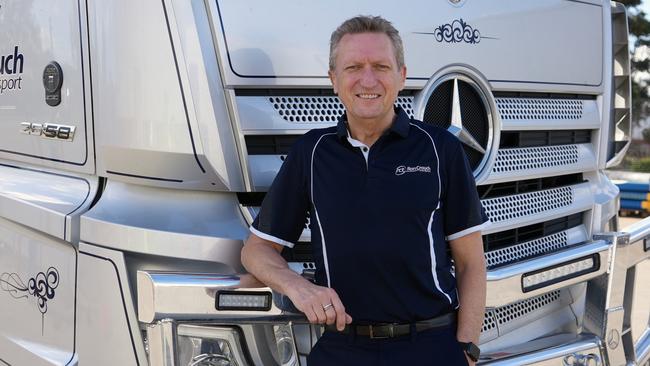
Once we are through the Christmas festivities, the big non-Covid Australian drama will be the shortage of the so called AdBlue – a crucial diesel exhaust fluid that is already in short supply and likely to run out around February.
Once it runs out, it will cripple a large portion of the Australian truck fleet.
In turn, this will lead to shortages of food in supermarkets, severely-restricted menus in restaurants, higher prices and a severe slowing of the Australian economy.
Unless action is taken this month, supermarkets will consider introducing rationing in January which will be much more severe than the toilet roll curbs we saw in the Covid crisis.
And this time, the shortages will be real.
On the surface there seems no way out of this looming crisis as AdBlue is made from urea and there is a global shortage of urea because China has blocked exports, apparently in an attempt to drive down its fertiliser prices.
If it resumes urea shipping, Australia will not be high on the list of countries to be supplied.
For Australia, it will be yet another example of how we foolishly abandoned key manufacturing industries to become dependent on China.
Fortunately, there is a way out of the problem if the government acts quickly enough.
Most of our trucks conform with European emission standards, which require the installation of AdBlue-driven systems to reduce the emissions from the diesel fuel that powers the trucks.
The software-controlled apparatus inserted into the trucks is constructed in a way that makes it almost impossible to drive the truck without using the AdBlue system.
I understand it is not difficult to adjust the trucks so that they can run without the AdBlue system but, of course, there will be a lot more pollutant.
That will understandably cause community outrage, but once severe food shortages and big price rises develop, that outrage is likely to swing towards the food situation.
If the AdBlue system system is neutralised, there will need to be changes to Australian regulations which won’t be easy to muster over the January holidays.
But there is a more difficult problem.
Most trucks operate on a warranty arrangement from the big truck companies and an essential clause in all these warranties is that there must be no unapproved alteration to the AdBlue system in each truck.
The big Australian transport companies and the individual truck owners will be very reluctant to disconnect the AdBlue system and lose their truck warranty because it could put them out of business very quickly.
Mercedes, Volvo, Toyota and other large diesel truck makers will need to develop a policy or will be accused of holding the country to ransom.
How the government handles what is looming as a major problem will become an issue in the May election.
It could impact Treasurer Josh Frydenberg’s pre-election budget.
The intricacies of how a government would maintain the truck warranties while disconnecting the AdBlue system involves detail that I am not qualified to explore.
But I have been able to establish from reliable sources, who don’t want to be quoted, that it is not hard for a qualified person to disconnect the AdBlue system and allow our trucks to deliver food and other goods.
But it will make our cities more pollutant.
Very clearly, Australia needs to establish a working urea plant or some other product that can be a substitute for AdBlue.
The main raw material for urea is natural gas, which in many circles in Australia, is a dirty word.
In Gippsland in Victoria, we have one of the world’s biggest onshore natural gas deposit that does not require fracking but it is banned by from development by Victorian Premier Daniel Andrews.
But there is also higher cost gas in Bass Strait, Queensland, and other parts of eastern Australia.
Or perhaps, we should put the plant in WA.
In a strange way, the shortage of food and the AdBlue system is going to bring to into focus a whole series of issues that have been simmering below the surface for a long time.
Among them is reliance on China, gas as an interim fuel and carbon storage.
The issue of disconnecting the the AdBlue system may even overshadow carbon emission targets, especially if key food products double and quadruple in price, if you can get them.



